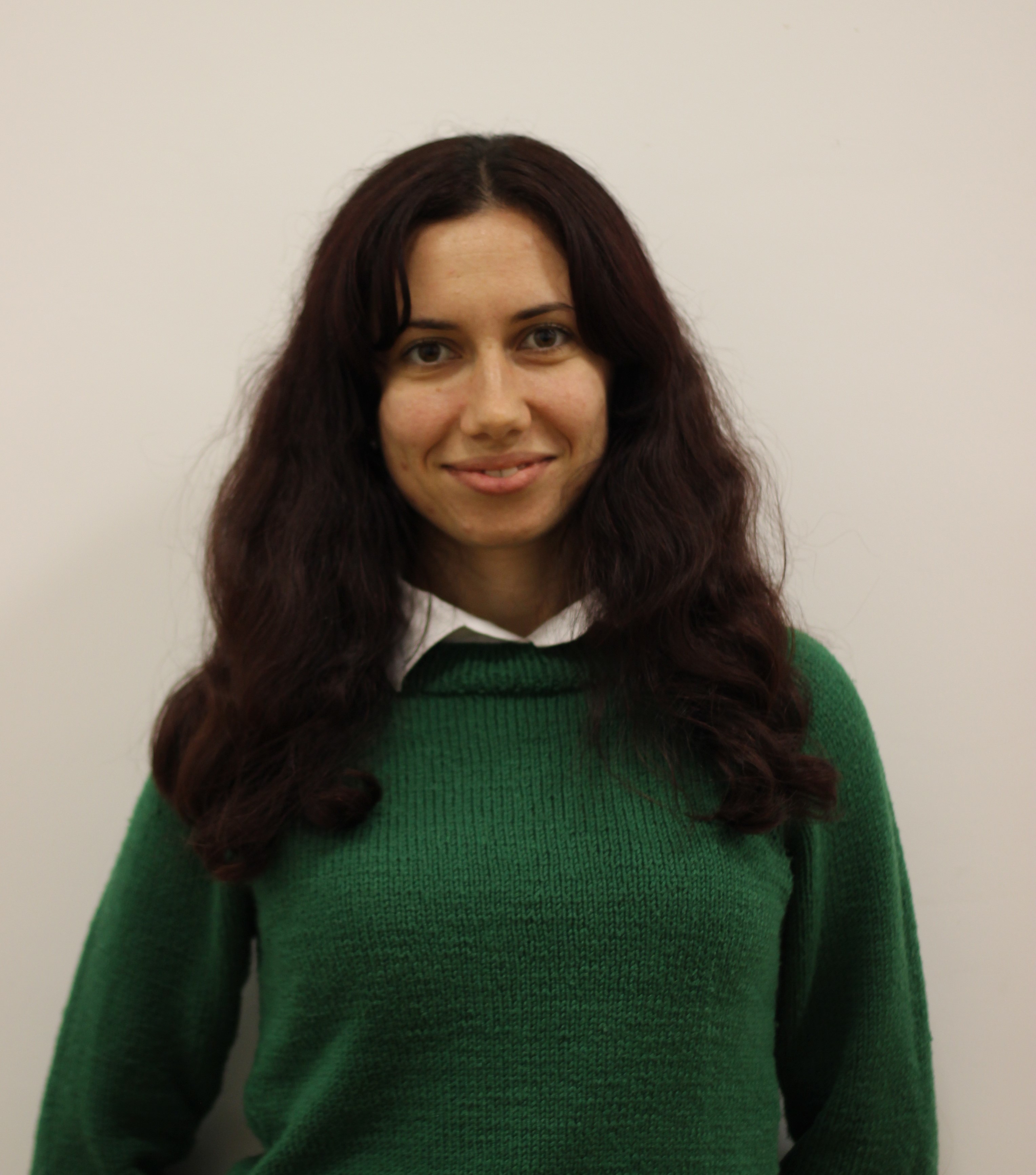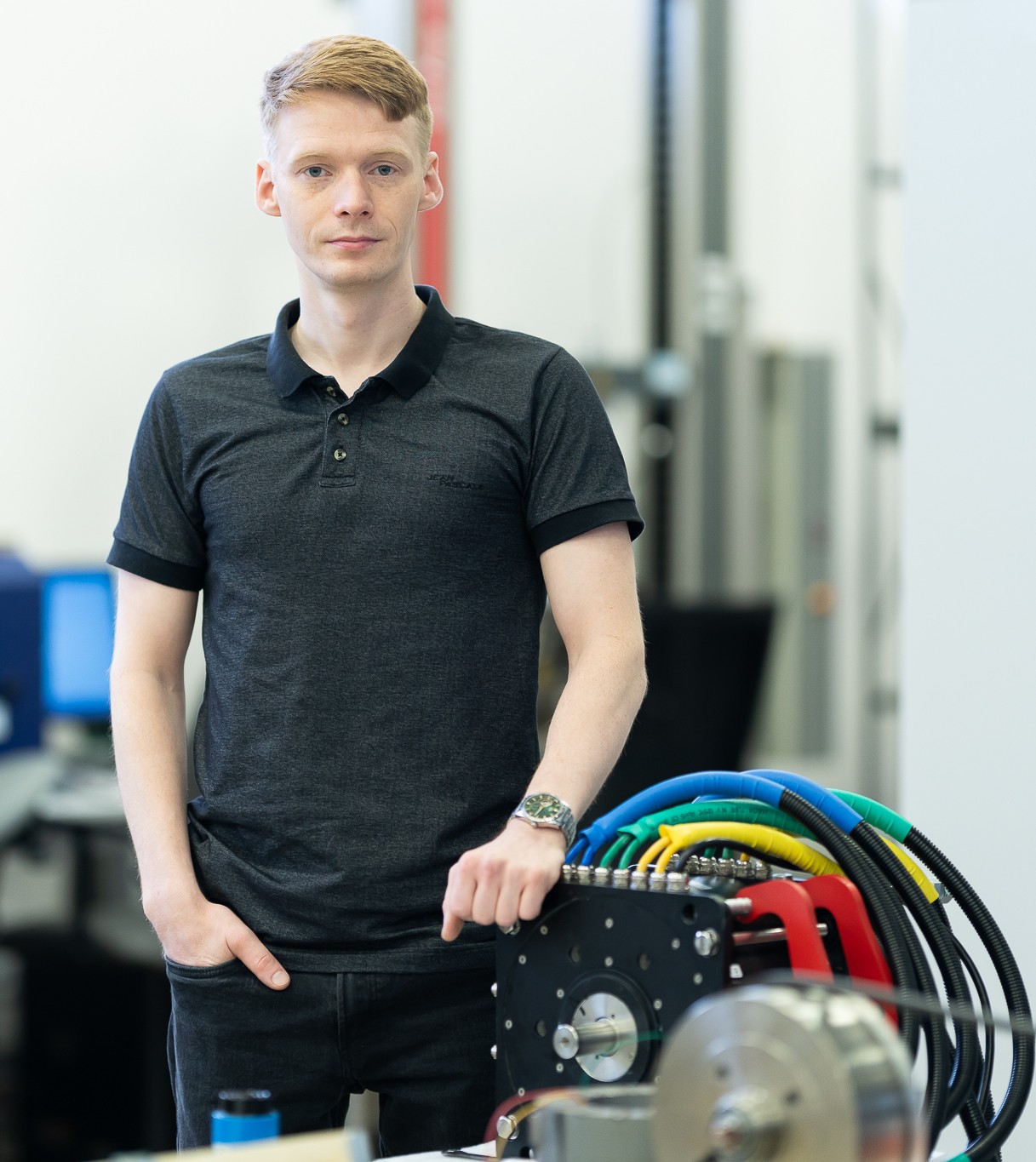A Truly Global Cohort of Talents: Meet the EU-CONEXUS Enables PhD Pioneers
The diversity of this PhD cohort is one of the programme’s strongest assets. Each student brings a unique background, cultural perspective, and academic expertise to the EU-CONEXUS community:
|
| Maria-Angelica Stanciu joins the EU-CONEXUS Enables PhD programme as a joint candidate between the University of Civil Engineering Bucharest (UTCB) in Romania and South East Technological University (SETU) in Ireland, working under the supervision of Razvan Calota (UTCB) and Indrakshi Dey (SETU). Maria is Romanian, and her educational background is in Civil and Structural Engineering, with a strong academic record that includes top-of-class and highest-grade distinctions during her Bachelor’s and Master’s studies in Bucharest. Her PhD project: Enhancing Energy and Environmental Efficiency through Integrated Parametric and Agent-Based Modelling for Bio-Mimetic Design in Structural Components (E3-BioMod) “Sustainability starts with a deeper understanding of how buildings work and how we can design them more responsibly.” |
 |
|
| Benas Dumbrauskas, who is from Lithuania, brings his expertise in marine engineering and sustainable propulsion technologies to the EU-CONEXUS Enables PhD programme. He is pursuing a joint cotutelle between Klaipeda University (KU) and the University of Rostock (UROS) — two leading institutions in maritime and coastal research. Under the supervision of Paulius Rapalis (KU) and Stefan Lüdtke (UROS), Benas is focused on advancing the future of green maritime transport. His PhD project: Development of a Digital Twin for Ship’s Diesel Engine Operating on Alternative Fuels "My journey from building high-performance electric motors to developing the digital twins for marine engines is a direct path towards a singular goal: decarbonizing our maritime future." |
 |
|
| Mareeha Rafiq, from Pakistan, joins the EU-CONEXUS Enables PhD programme as a remarkable example of continuity within the alliance. She is an EU-CONEXUS master alumna, set to continue her academic journey at the doctoral level. Her PhD is a cotutelle between the Agricultural University of Athens (AUA) in Greece and the Catholic University of Valencia (UCV) in Spain. Supervised by Emmanouil Flemetakis and Thomas Bartzanas (AUA), together with Ana de Luis Margarit, Mareeha’s research blends biotechnology, agriculture, and digital innovation. With a strong foundation in Marine Biotechnology and a deep passion for Sustainable Innovation, Mareeha is driven by the vision of transforming agriculture through the power of algae. Her PhD journey focuses on integrating biotechnological and digital approaches to unlock Algae-Derived Solutions that enhance crop resilience, promote environmental sustainability, and contribute to a more secure and sustainable global food system. Her PhD project: Harnessing Algae-Derived Biostimulants to Enhance Crop Resilience and Productivity: A Multi-Omics and Digital Twin Approach “I’ve always believed that the answers to our biggest challenges lie in nature’s smallest forms. By harnessing the power of algae, I hope to contribute to a future where science and sustainability grow hand in hand.” |
 |
|
| Ana Castro Sancho, from Spain, joins the EU-CONEXUS PhD programme, bringing her background in Sport Sciences and a passion for connecting digital innovation, tourism, and sustainability. She is pursuing a joint cotutelle between the University of Zadar (UNIZD) in Croatia and the Catholic University of Valencia (UCV) in Spain. Under the guidance of Ana Pejdo and Ana Šimunić (UNIZD) together with Pablo Vidal (UCV), Ana will take a transversal, interdisciplinary approach to explore how emerging digital technologies are reshaping outdoor recreation and sustainable park management, aiming to promote a balance between the visitor experience and ecosystem conservation. Her PhD project: Hiking 4.0: The Digital Transformation of Hiking and its Impact on the Sustainable Management of Natural Parks in Coastal or Peri-Urban Areas “We often see technology and nature in conflict. My vision is to turn digital tools into powerful allies for conservation, ensuring our research translates into practical, real-world applications that help society manage tourism sustainably while preserving the ecosystems” |
 |
Together, these researchers represent the academic excellence and global spirit of EU-CONEXUS through joint research and collaboration. Their projects address crucial issues in sustainable development, from resilient coastal infrastructures and energy systems to urban planning, circular economy, and climate adaptation.
All activities are organised under the EU-funded project EU-CONEXUS Enables (Project number: 101136822), titled ‘Promoting Excellence Through Innovative Eco-systems‘.
|
|
|
Funded by the European Union. Views and opinions expressed are however those of the author(s) only and do not necessarily reflect those of the European Union or European Research Executive Agency. Neither the European Union nor the granting authority can be held responsible for them. |








